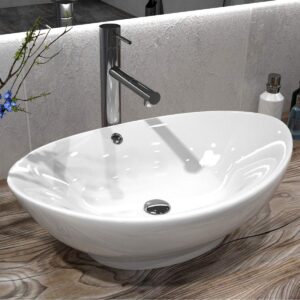
Introduction
Imagine stepping into a kitchen where your coffee brews itself, your oven preheats while you’re on your way home, and your fridge tells you when you’re out of milk. Welcome to the era of smart kitchens powered by the Internet of Things (IoT). While these innovations promise convenience and efficiency, they also raise questions about reliability. Let’s explore how IoT revolutionizes home cooking and whether these smart appliances are reliable.
1. What Is a Smart Kitchen?
A smart kitchen integrates IoT-enabled appliances and devices to enhance cooking, cleaning, and food storage. These appliances connect to your home Wi-Fi and can often be controlled via apps or voice commands, offering unprecedented convenience and automation.
2. Key Features of IoT-Enabled Kitchens
Remote Control and Monitoring
Smart ovens, dishwashers, and refrigerators can be operated remotely. Left the oven on? No problem. With a tap on your phone, you can turn it off from anywhere.
Voice Activation
Many smart kitchens integrate with virtual assistants like Alexa, Google Assistant, or Siri, allowing you to control appliances hands-free.
Automated Cooking
Smart ovens and stoves come with pre-programmed recipes and sensors that adjust cooking times and temperatures for perfect results.
Inventory Management
Smart fridges can track food items, suggest recipes, and even notify you when items are about to expire.
3. The Benefits of Smart Kitchens
Convenience and Time-Saving
Automating tasks like preheating ovens or setting timers makes multitasking easier, freeing you to focus on other aspects of life.
Energy Efficiency
Many IoT appliances are designed to optimize energy usage, helping reduce your utility bills. For example, smart dishwashers adjust water usage based on the load.
Personalized Cooking
Smart appliances learn your preferences over time, suggesting recipes or adjusting settings to suit your cooking style.
4. The Reliability Question: Are Smart Kitchens Worth It?
While the benefits are enticing, there are legitimate concerns about the reliability of IoT in the kitchen.
Connectivity Issues
One of the biggest challenges is maintaining a stable Wi-Fi connection. A weak signal can render your smart appliances temporarily unusable.
Software Glitches
Smart devices rely on software that may occasionally malfunction. A firmware update might fix a problem—or create a new one. Although many appliance repair professionals are now trained to manage software updates, many are not.
Durability Concerns
Traditional appliances are built to last, but IoT-enabled ones often have more complex components that can wear out faster or be expensive to repair.
Data Privacy Risks
Smart appliances collect data to offer personalized services, but this also opens up potential vulnerabilities to hacking or misuse of personal information.
5. Popular Smart Kitchen Appliances
Smart Refrigerators
Brands like Samsung and LG offer refrigerators with built-in screens, cameras, and inventory tracking systems.
Smart Ovens and Ranges
Companies like GE and Whirlpool have launched ovens with pre-programmed cooking modes, app control, and self-cleaning features.
Smart Dishwashers
Wi-Fi-enabled dishwashers adjust water usage based on load size and allow you to schedule cycles remotely.
Smart Coffee Makers
Brewing coffee can be as easy as setting a timer or using voice commands.
6. Maintenance Tips for Smart Kitchen Appliances
Keep Software Updated
Regularly update firmware to fix bugs and improve performance.
Check Connectivity
Ensure a strong Wi-Fi connection and invest in a quality router if needed.
Regular Cleaning and Care
Smart or not, appliances need regular cleaning to prevent buildup and maintain functionality.
Secure Your Network
Protect your devices from cyber threats by using strong passwords and secure Wi-Fi networks.
7. Are Smart Kitchens the Future?
The Growing Popularity
IoT technology is rapidly evolving, and smart kitchens are becoming increasingly mainstream. With improving AI capabilities, appliances are likely to become even more intuitive and reliable.
Potential Limitations
For all their bells and whistles, smart kitchens may not be ideal for everyone. Technological complexity can be a barrier for those who prefer simplicity or lack tech expertise.
8. Balancing Smart and Traditional
For those unsure about diving into the smart kitchen revolution, a hybrid approach can work. Opt for a few smart devices, like a smart speaker or coffee maker, to test the waters before committing to a fully IoT-enabled kitchen.
Summary
IoT has undeniably transformed the kitchen, making cooking and managing food easier and more efficient. However, the reliability of smart appliances largely depends on stable connectivity, regular maintenance, and user comfort with technology. While not without challenges, the benefits of a smart kitchen often outweigh the drawbacks for tech-savvy users. As IoT technology continues to advance, smart kitchens are poised to become a staple in modern homes.
FAQs
1. Are smart kitchen appliances energy efficient?
Yes, many are designed to optimize energy use, but their overall efficiency depends on how they’re used.
2. Can I use smart appliances without Wi-Fi?
Most features require Wi-Fi, but basic functions may still work offline.
3. Are smart kitchens expensive to set up?
Initial costs can be high, but the long-term savings in energy and convenience often justify the investment.
4. How do I secure my smart kitchen appliances?
Use strong passwords, update software regularly, and secure your home network.
5. What happens if my smart appliance stops working?
Check for software updates or connectivity issues first. If unresolved, contact the manufacturer for support.




